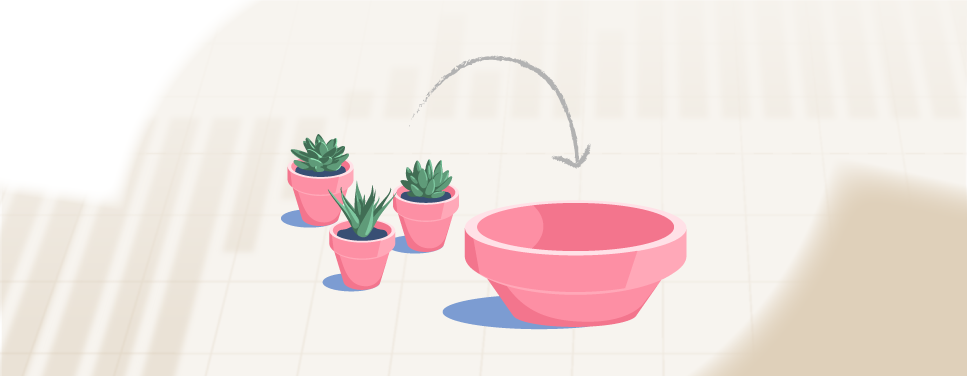When planning for the future, you may be asking what happens to my SIPP when I die. There are specific rules that determine who can inherit your pension, how it will be taxed, and all the options available. Understanding these provisions and what happens to investments in general, ensures your retirement savings are passed on according to your wishes.
| Two most common types of private pension? | •Defined contribution pensions •Defined benefit pensions |
| Factors that affect private pension taxation when you die? | •Death age of pension holder •Uncrystallised pension •Type of pension withdrawal |
| What is the main factor that affects defined benefit pensions when you die? | If the pension holder retired prior to death |
| The most important State Pension rule when you die? | If the pension holder reached State Pension age |
Budgeting for your retirement could be taxing unless you use suitable tax wrappers, such as ISAs or SIPPs. In this blog we explain what happens to your SIPP and to your other investments upon death, and why you should seek professional advice regarding how much you can leave your loved ones.
At a Glance
- How SIPPs and other private pensions are treated on death.
- Tax rules before and after age 75.
- Options for beneficiaries, including drawdown, lump sum, and annuity.
Various types of pensions
There are several types of pension schemes in the UK. The main categories are:
- The State Pension
- Defined contribution pensions
- Final salary pensions
- Private pensions
- Workplace pensions
Each type of pension is subject to different rules when it comes to beneficiaries and tax treatment after death. In some cases, the age at which you pass away can also affect what your loved ones receive.
In this Moneyfarm guide, we focus on private pensions. If you’ve ever wondered, “What happens to my private pension when I die?”, we’ll explain the key points in detail.
But before that, it’s worth considering a related question: Does a private pension last for the whole of your life?
If you don’t get your retirement planning right, it is possible that you’ll exhaust your private pension pot before you die, in which case you will be solely dependent for income on your State Pension, and there will be nothing to pass on.
But for the purposes of this Moneyfarm blog, we assume your financial planning for your retirement worked well, and there is money to be distributed to your named beneficiaries.
What are SIPPs
A Self-Invested Personal Pension (SIPP) is a type of defined contribution pension that gives you control over how your retirement savings are invested. You can use the pension fund from your defined contribution pension and take it out as a lump sum, turn it into a pension drawdown, or use it to buy an annuity.
The same death benefit rules apply as for other defined contribution pensions: before age 75, benefits can usually be passed on tax-free if paid within two years and within the Lump Sum and Death Benefit Allowance (LSDBA); at or after 75, payments are taxed at the beneficiary’s marginal rate.
For Inheritance Tax purposes, SIPP funds generally fall outside your estate while they remain in the pension, but from April 2027 most pension death benefits will be included in the estate for IHT calculations (subject to final legislation).
If my husband dies, do I get his private pension?
This is an important concern for many spouses and civil partners. The reality is that there is no single answer, as the treatment of private pensions on death depends on several factors, including the type of pension scheme, the options selected, and any beneficiary nominations in place. The following sections outline the key considerations in more detail.
The main types of private pension and how they differ on death benefits
Private pensions generally fall into two main categories, and the death benefits they provide can differ significantly.
Defined contribution pensions
A defined contribution pension scheme is a scheme that relies on how much has been paid into it either by you and/or your employer. In other words, it relates to a defined amount. This type of pension is also referred to as a “money purchase’ pension scheme”. You can use the pension fund from your defined contribution pension and take it out as a lump sum, turn it into a drawdown, or use it to buy an annuity.
At death, the treatment of your DC pension will depend on:
- How benefits have been accessed (i.e. whether funds remain in the pot, are in drawdown, or have been used to buy an annuity).
- Your age at death:
- before age 75: benefits are paid tax-free to beneficiaries (subject to LSDBA rules and the two-year claim limit);
- at or after 75: withdrawals are taxed at the beneficiary’s marginal rate.
How to nominate beneficiaries for your private defined contribution pension
Nominating beneficiaries are usually set by the scheme’s rules and may include:
- The spouse.
- A registered civil partner.
- A financially dependent partner.
It is important to keep nominations and personal records up to date, especially after marriage, divorce, or bereavement.
Defined benefit pensions
What happens to your private pension when you die, and it’s a defined benefits scheme? This scenario is a little different because this type of pension is linked to your salary and for how long you worked for your employer. The main consideration with these types of pensions is whether or not you retired before you passed.
- Before retirement: many schemes offer a lump sum (often two to four times salary) and/or a dependant’s pension. Lump sums are typically tax-free if death occurs before age 75.
- After retirement: ongoing payments to a surviving spouse, civil partner or qualifying dependant may be available, but usually at a reduced rate. These pensions are taxable as income in the hands of the recipient.
However, compared to personal pensions, these rules are considerably stricter when determining who can receive death benefits.
Moneyfarm does not offer defined benefit pensions. However, defined contribution pension plans, such as SIPPs, are available.
Nominating beneficiaries for your private defined benefits pension
The beneficiaries are usually defined according to your particular scheme’s rules. Normally the options are:
- Your legal spouse.
- Your registered civil partner.
- A partner that lives with you that is financially dependent on you..
It’s best that you check with your scheme providers to establish exactly what happens when you die.
You should ensure your nominations are kept up to date, especially after certain event changes such as divorce, marriage, or the death of a child or partner.
What happens to defined contribution pensions when I die?
Upon your death, there are a variety of ways to withdraw funds from pension accounts. The tax implications of your pension vary according to your age at death and if your beneficiaries don’t make a claim within two years of your passing. Here are the options below
What happens to your private pension when you die
An uncrystallised private pension is a retirement fund that has not yet been withdrawn from through drawdown or converted into an annuity.
If you haven’t withdrawn any income from the scheme, what happens to the private pension when you die before reaching the age of 75, is that it can be passed on to your beneficiaries tax-free provided it is paid within two years and remains within your Lump Sum and Death Benefit Allowance (LSDBA), which is £1,073,100 in 2025/26. The money can be withdrawn as a lump sum payment, an annuity, or a flexible retirement income (pension drawdown).
If you die at or after age 75 the LSDBA does not apply and the entire amount is taxable as income at the recipient’s marginal rate, regardless of whether it is taken as a lump sum, drawdown, or an annuity purchase.
Annuity private pension
If you have already used your pension pot to buy an annuity, most annuities will stop paying when you die.
Certain types can continue payments to a beneficiary after your death (i.e. joint-life, value-protected, or guaranteed-term annuities).
- If death occurs before age 75, these payments are usually tax-free.
- If death occurs on or after age 75, they are taxed at the beneficiary’s marginal rate.
Rules vary between providers, so it’s important to confirm the death benefit terms of your annuity before purchase.
What happens to my drawdown private pension when I die?
With flexi-access drawdowns, or pension drawdowns, you can access your pension savings, and you can take out up to 25% tax free. The advantage of a flexi-access drawdown is that your pension funds remain invested while having access to it.
- Death before age 75: any remaining funds can normally be passed to beneficiaries tax-free if within the LSDBA and paid within two years.
- Death at or after age 75: LSDBA does not apply so payments are taxable as income for the beneficiary, at their marginal rate.
What happens to your private pension when you die as regards inheritance tax?
Pension drawdowns are free from Inheritance Tax (IHT) as they do not form part of an estate. However, assets such as cash, savings and investments from money withdrawn from a pension before death are considered part of your estate and are liable to Inheritance Tax. Pensions outside of an estate are often not subject to IHT.
Estate allowance thresholds for 2025–26:
- Nil‑Rate Band (NRB): £325,000 per individual
- Residence Nil‑Rate Band (RNRB): £175,000 per individual, when passing your home to direct descendants, giving each person a total allowance of £500,000.
- Combined allowances for couples can reach £1 million, if both NRB and RNRB are fully available (tax-free allowance could go up to £650,000 if a spouse or civil partner did not use their £325,000 threshold)
- Inheritance Tax is charged at 40% on any part of your estate that exceeds the threshold limit, including any gifts given in the seven years leading up to death.
What other pension inheritance tax rules apply?
If you die before the age of 75, any remaining funds in a defined contribution pension can be passed to your beneficiaries free of income tax, provided they are paid within two years of your death and fall within your LSDBA, Lump Sum and Death Benefit Allowance (£1,073,100 for 2025/26).
These payments are now subject to the Lump Sum and Death Benefit Allowance (LSDBA), which replaced the Lifetime Allowance in April 2024.
- The standard LSDBA is £1,073,100 (as at 2025/26).
- This allowance applies across all pension schemes for tax-free lump sum death benefits.
Any amount above the LSDBA is taxed at the beneficiary’s marginal rate of income tax.
If you die on or after age 75, any pension funds you leave to beneficiaries will be taxable as income at their marginal rate, regardless of whether the benefits are taken as a lump sum, drawdown income, or an annuity. In these cases, the Lump Sum and Death Benefit Allowance (LSDBA) does not apply as there is no tax-free element on death.
Get in touch with your pension provider or scheme trustees if you don’t know what benefits your loved ones will get after your passing. They can explain the details of your plan and how it affects your beneficiaries.
What happens to your State Pension after you die?
You now know who gets your private pension when you die, but what happens to your private pension when you die in terms of State Pension? The good news is that you can pass part of your State Pension payments on after your death. However, they can only go to your spouse or civil partner.
The most important rule regarding the State Pension and the death of the pension holder is whether or not he or she was of pensionable age before the last changes came into effect on the 6th of April 2016.
- If you reached pensionable age before the 6th of April 2016 your spouse can receive part of your additional State Pension (also known as the State Second Pension or SERPS) plus any graduated retirement benefit you had built up.
- If you reached pensionable age on or after the 6th of April 2016 your spouse can inherit part of your protected payment, if you had one, and benefit from your qualifying NI years in certain situations, such as if they do not already have a full NI record.
In certain cases your spouse or civil partner may qualify for a Bereavement Support Payment, which is a tax-free lump sum followed by up to 18 monthly payments. Should you have reached state pension age after the 6th of April 2016, your spouse or partner could be entitled to inherit an extra payment in addition to your pension.
Unfortunately, not everybody can afford a private pension. Thousands of people still rely on the State Pension and are concerned about what happens to their pensions after their death.
If you or your loved ones are due to receive a lump sum, understanding how to invest an inheritance effectively can help make the most of those funds.
Important: Pension rules are complex, and eligibility can depend on your marital or civil partnership status, NI record, and whether you were receiving any protected elements. It is advisable for your spouse or civil partner to speak with their pension provider and to contact the Pension Service after your death to confirm what they can claim.
Pension death benefits: before vs. after age 75
|
Pension type |
Death before 75 |
Death at or after 75 |
|
Defined Contribution (uncrystallised or drawdown) |
Benefits usually paid tax-free if within the Lump Sum and Death Benefit Allowance (LSDBA) and within two years |
Benefits taxed as income at the beneficiary’s marginal rate |
|
Defined Contribution (annuity purchase) |
Payments may continue only if a joint-life, guaranteed term, or value-protected annuity was chosen. Typically tax-free if before 75 |
Payments to dependants taxed at the beneficiary’s marginal income tax rate |
|
Defined Benefit (final salary) |
Lump sum (often 2–4 times salary) and/or dependant’s pension, usually tax-free |
Reduced dependant’s pension may continue, taxable as income |
|
State Pension |
Not inheritable in full, but spouse or civil partner may inherit certain elements depending on NI record and pension age rules |
Same as before 75 – inheritance rights depend on NI contributions and date when State Pension age was reached |
Key points to remember
-
Death benefits depend on your age at death, pension type, and whether funds have been accessed.
-
Before 75 most defined contribution pensions can be passed on tax-free within the LSDBA if paid within two years.
-
After 75 all payments are taxed as income at the beneficiary’s marginal rate.
-
IHT rules change from April 2027, bringing most pension death benefits into the taxable estate.
FAQ
The pension beneficiaries are determined by the terms of the pension contract and the specifics of that contract. Pension beneficiaries can be spouses, civil partners, children, or grandchildren.
The taxes you pay on inheritance will depend on the type of pension scheme, payment plan, and the age of the deceased pension owner. For example, up to 45% income tax is charged on defined contribution pensions with lump sums or annuity payments, and if the pension owner dies at age 75 or over. Also, if the deceased’s pension is above the current lifetime allowance, you will pay a lifetime allowance tax charge. Visit gov.uk for more information.
Inheritance tax is imposed on a deceased’s estates (property, money and possessions), but it usually does not apply to inherited pension pots. This is because pensions are usually ‘discretionary‘, so pensions are not considered part of a deceased estate. However, IHT is charged if pension payments are not discretionary. As standard practice, 40% IHT applies to part of an inherited estate over £325,000 that is not left to a spouse, civil partner, or charity.
Yes, in most defined contribution schemes you can nominate beneficiaries by completing an “expression of wish” form with your provider. However, the scheme trustees or provider retain discretion over the final decision. Keeping your nominations up to date after events such as marriage, divorce, or bereavement is essential.
In general, private pension savings that remain within a pension scheme are not considered part of your estate for Inheritance Tax purposes. However, money you have already withdrawn from your pension and moved into a bank account or other assets will normally be included in your estate.
*As with all investing, financial instruments involve inherent risks, including loss of capital, market fluctuations and liquidity risk. Past performance is no guarantee of future results. It is important to consider your risk tolerance and investment objectives before proceeding.





